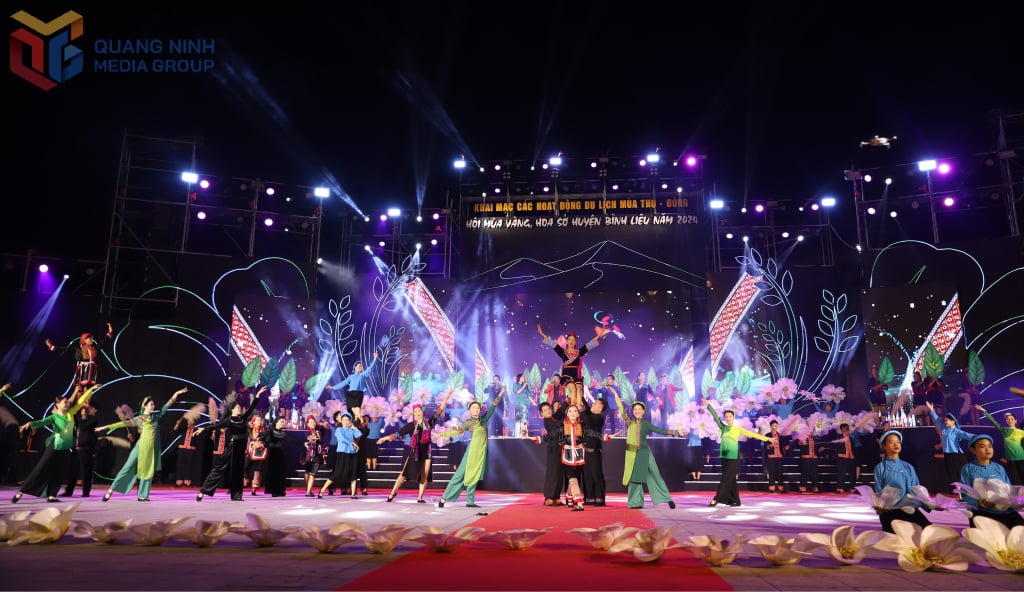
Meaningful spiritual and cultural life
For many days now, Ms. Trieu Kim Thanh, Head of the Na Bap Village Arts Club (Ba Che Commune) and the village members have been busy practicing art performances to perform for the village's event - The program celebrates the 80th Anniversary of the August Revolution and National Day September 2nd . Music resounded from the speakers in the Cultural House, Ms. Thanh and the sisters in the Club quickly went on stage, dancing to their practiced dances. The pink, black, blue, purple, red colors and the silk threads decorating the traditional costumes harmonized with each step of the sisters, making the performance more lively and attractive.
“There are 5 performances in total, all of which are songs praising the beauty of the homeland, the country, love between couples, gratitude to the Party... We watch songs and dances online, then practice. We sing, dance, and perform not only when the village or commune has events, but also on normal days, after finishing housework and farming, we all come to the Cultural House to sing and dance together. Performing arts helps women to be happier and healthier,” Ms. Thanh shared.
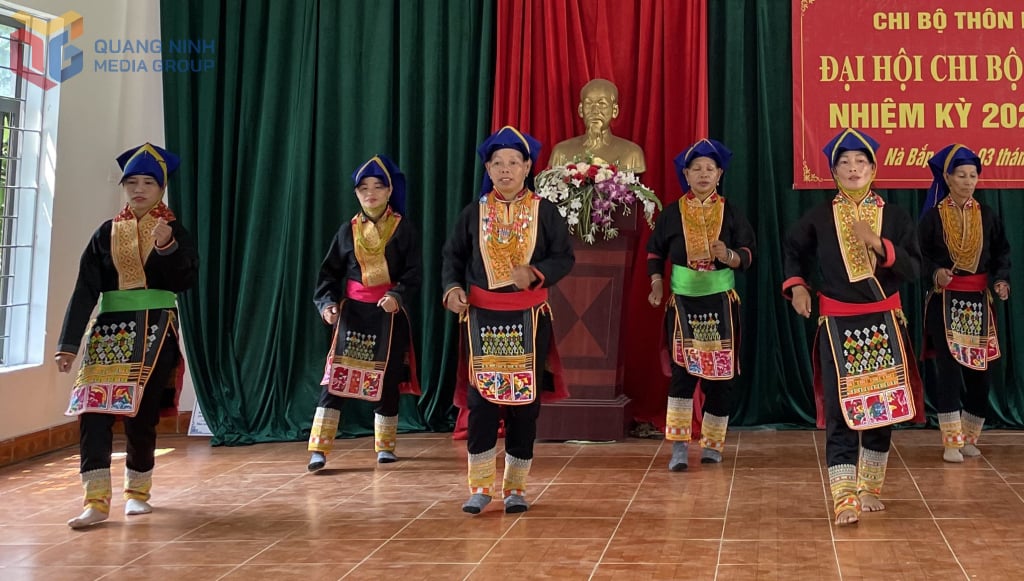
Cultural institutions built synchronously not only help people "have a place to play, a place to learn", but also act as a glue to unite the community, a stage to promote unique indigenous cultural values. Not far from Na Bap village is Lang Cang village, where cultural activities are also regularly organized by the sisters in the village's Folk Dance Club. The village's cultural house is spacious and well-equipped with basic equipment, making spiritual activities convenient. Taking advantage of her lunch break, Ms. Trieu Thi Nga, a young Dao woman, arrived earlier than usual, turned on the speakers, and rearranged the tables and chairs to create more space for people to enjoy.
While working, Ms. Nga said: "Since the new, bigger and more beautiful cultural house was built, we have been practicing more actively. Every time we have a chance to perform, the cultural house is packed with people. People come to watch, cheer, meet and chat with each other. On holidays and Tet, other cultural and sports activities also take place here, such as volleyball, folk games, etc. The facilities have been invested in and are spacious, and the spiritual life of the people is increasingly improved."
The province's investment not only expands the space for ethnic minorities to interact, play and live, but also becomes a place to preserve, conserve and promote the good cultural values of the people.
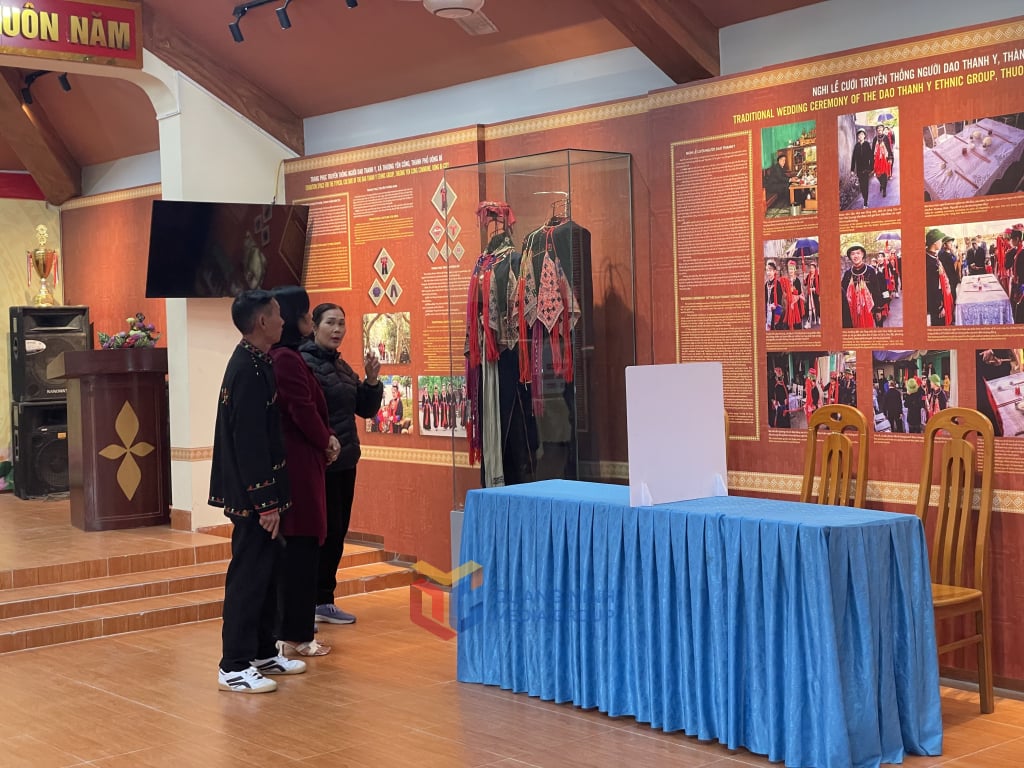
Taking us to visit the Dao Thanh Y Cultural Space Exhibition House, Mr. Trieu Van Loan, Party Cell Secretary, Head of Khe Su 2 Village (Yen Tu Ward) proudly introduced: This exhibition space is the long-cherished wish of our Dao Thanh Y people. Thanks to the attention of the State, this project was completed last August. The total investment of the project is 800 million VND. This is the area to display ethnic costumes for men and women; and this is the general introduction space to the Coming of Age Ceremony. For the Dao Thanh Y people, the Coming of Age Ceremony is the most sacred ritual. On the other side is a model of a rammed earth house and a space displaying the kitchen corner of the Dao Thanh Y people. Around the display house are hung many pictures and artifacts associated with the life, activities and culture of the Dao Thanh Y people. Since the project was put into operation, not only the Dao Thanh Y people of Khe Su 2 village, but also the Dao Thanh Y people in neighboring localities and other provinces have come to visit and admire. This place has also become a place for people to meet each other on holidays, Tet and important events.
Care for the people
Quang Ninh currently has 42 ethnic minority groups with nearly 163,000 people, scattered in more than 85% of the province's area. Over the past years, with resources from national target programs, provincial budgets and socialization, the province has prioritized investment in grassroots cultural institutions, such as village and hamlet cultural houses, community activity points, sports grounds, libraries, etc. Up to now, 100% of ethnic minority villages and hamlets have cultural houses. Most of the village and hamlet cultural houses are equipped with sports equipment or children's playgrounds, helping to expand the playing conditions and improve the health of children and people.
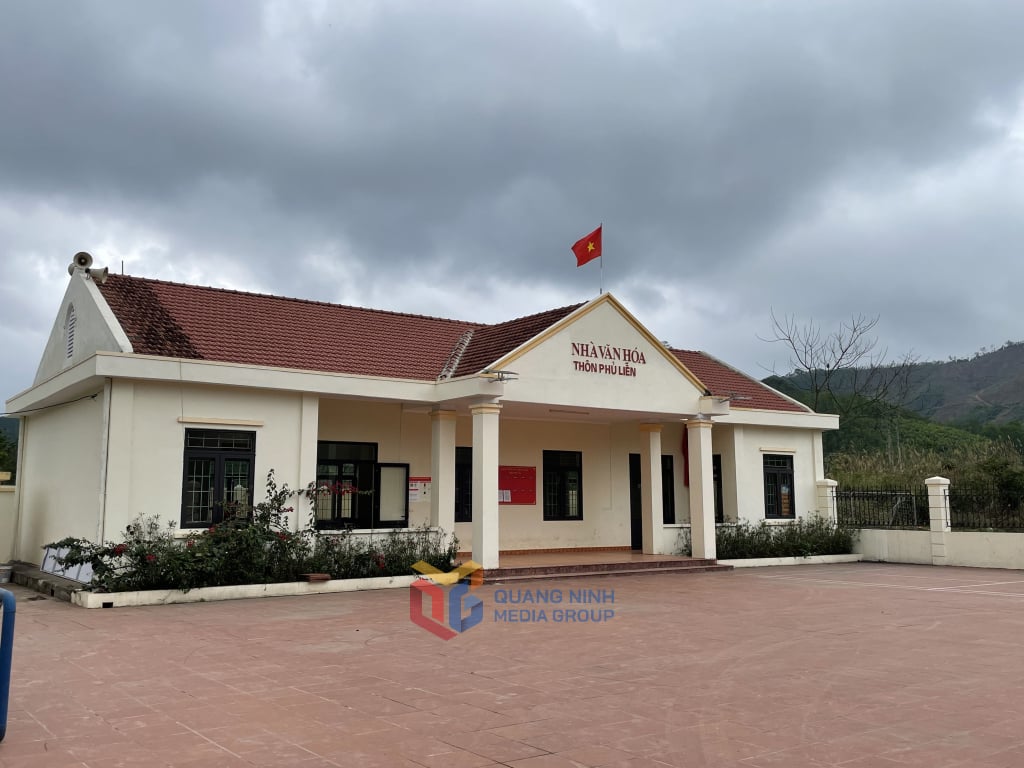
Quang Ninh also focuses on investing in telecommunications infrastructure and developing grassroots radio broadcasting to bring information to villages and hamlets, helping people easily access the Party's policies and guidelines, the State's laws, and useful cultural and educational content. 100% of ethnic minority households are guaranteed infrastructure to watch television and listen to national and provincial radio stations; the province's telecommunications network continues to be invested in and expanded with high speed and broadband, ensuring coverage in 100% of villages and hamlets.
The province effectively implemented projects to preserve intangible cultural heritage, such as Then rituals of the Tay ethnic group, Soong Co singing of the San Chi people, Soong Co singing of the San Diu people, Luc Na communal house festival (Tien Yen)... At the same time, it organized training courses to improve the capacity of management, practice, teaching, and preservation of intangible cultural heritage; established traditional clubs; organized festivals, competitions, performances, cultural exchanges, traditional arts, sports competitions and folk games... From here, many intangible cultural heritages of ethnic minorities escaped the risk of being lost. Many artisans were awarded the titles of People's Artisan, Meritorious Artisan, Folk Artisan, becoming "living treasures" inspiring the younger generation.
“As long as the culture remains, the nation remains,” affirmed Trac A Thin, founder of the Soong Co singing club in Luc Ngu village (Binh Lieu commune). Growing up with the Soong Co singing, Thin loved the rhythmic, rustic music of the San Chi people in his hometown. From that passion, he founded the Soong Co singing club, organizing practice and performance sessions, with the aim of creating a playground for those who love Soong Co, encouraging children and young grandchildren to participate, so that the Soong Co singing can be heard far and wide, and spread. He and the club members are coordinating with local schools to teach Soong Co singing to students; participating in collecting documents, providing information to serve the archiving, preservation, and making a dossier to propose the recognition of the Soong Co folk performing art as a national intangible heritage.
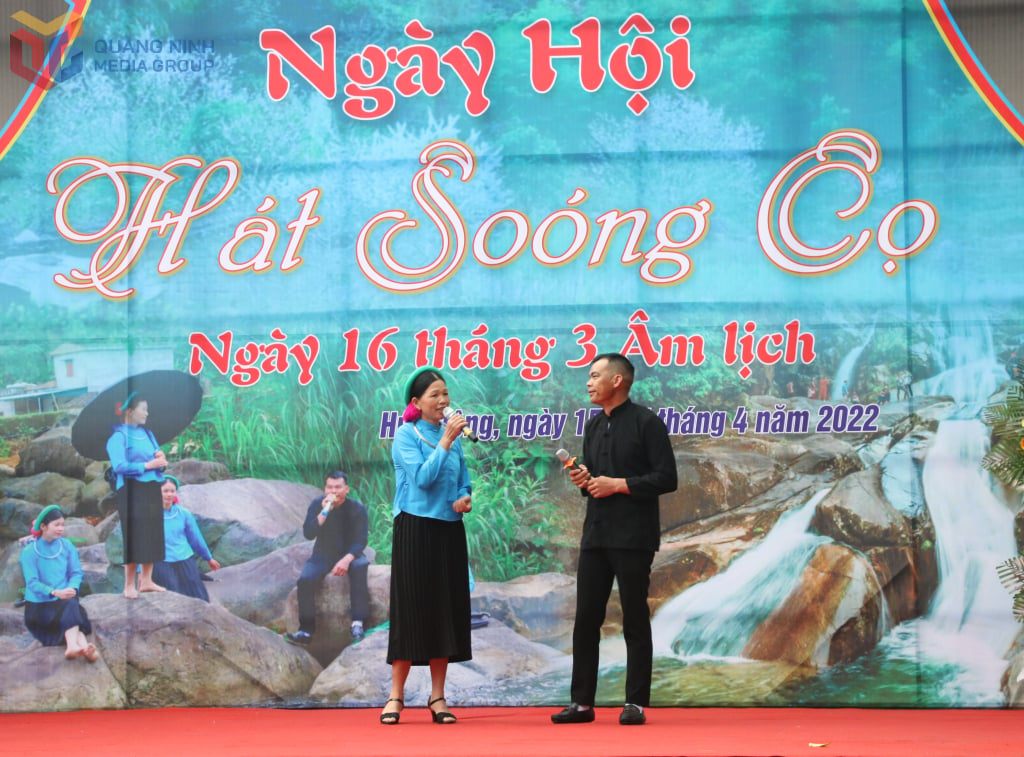
Every year, localities organize dozens of traditional festivals associated with national identity. Luc Na Communal House Festival, Binh Lieu Golden Season Festival, Wind Abstinence Festival of Thanh Phan Dao people in Hoanh Mo commune, Thanh Y Dao village festival in Quang La commune... become attractive cultural destinations not only for local people, but also for tourists inside and outside the province. Through these activities, cultural traditions are continued, the community becomes more united, and people's spiritual life is enriched.
The province also promotes traditional culture as an advantage for developing community tourism. In highland communes, ethnic minorities, people are supported to build homestays, build OCOP products with strong national identity, such as fermented leaf wine, yellow flower tea, dong vermicelli, five-color sticky rice, khau nhuc, cooc mo cake, banh chung with long rice..., meeting 3-5 star standards. Thereby, cultural life is not only preserved but also becomes a resource for sustainable economic development.
Support policies on education, health care, vocational training, and job creation are integrated with activities to improve people's intellectual level and expand cultural exchanges. The team of cadres working on ethnic affairs is regularly trained and improved in capacity, ensuring closeness to the people, understanding the people, and helping the people develop their internal strength. This is an important foundation for traditional cultural values to be preserved, passed down, and spread.
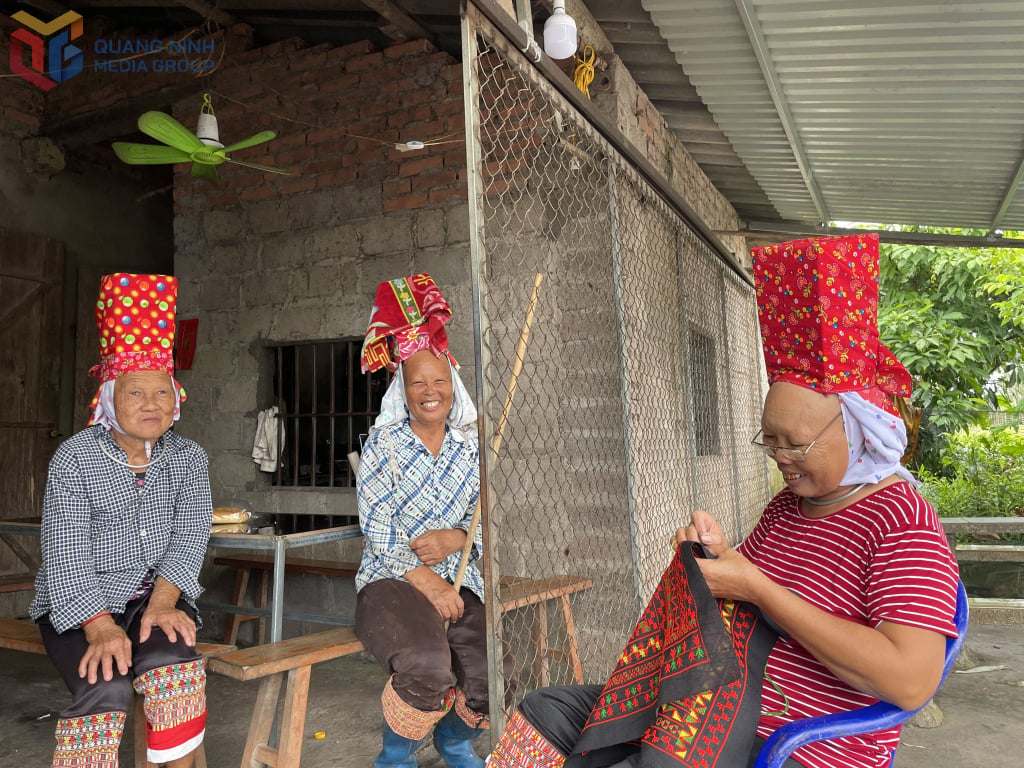
The spiritual life of ethnic minorities in Quang Ninh today is raised, present in the bright eyes of the elderly, the clear laughter of children, and the deep pride in the origin and the national cultural identity. That is the result of a persistent process in which every investment policy for culture, from infrastructure, cultural institutions to festivals, traditional costumes, songs, singing... are all being focused on and cared for. When culture is awakened and spread, identity is honored and preserved with all the heart, the spiritual life of ethnic minorities in the highlands is not only raised, but is truly blooming and bearing fruit, contributing to the sustainable development of Quang Ninh, humane and imbued with identity.
Source: https://baoquangninh.vn/lan-toa-van-hoa-truyen-thong-3367436.html


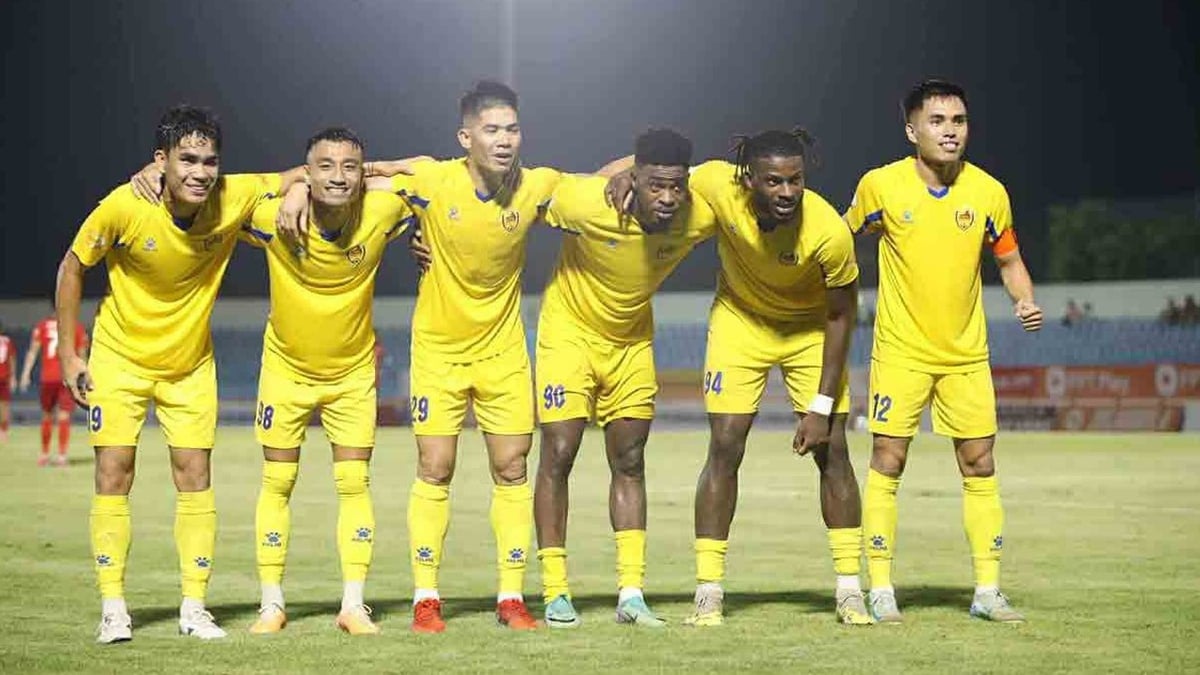

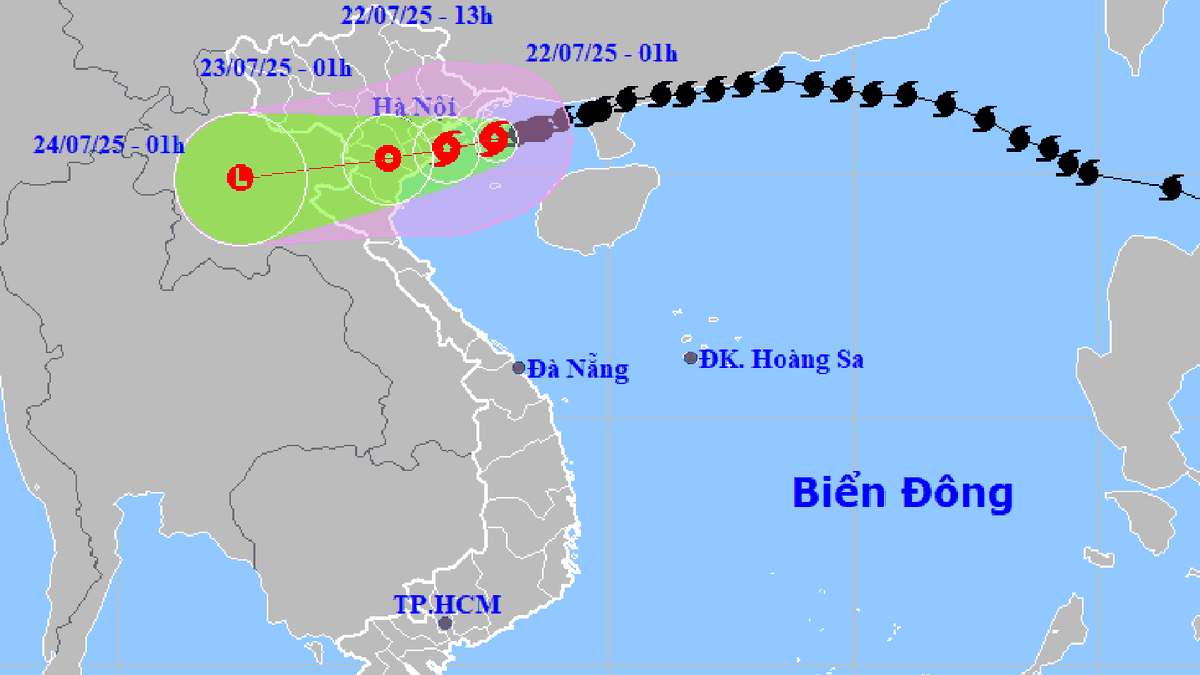
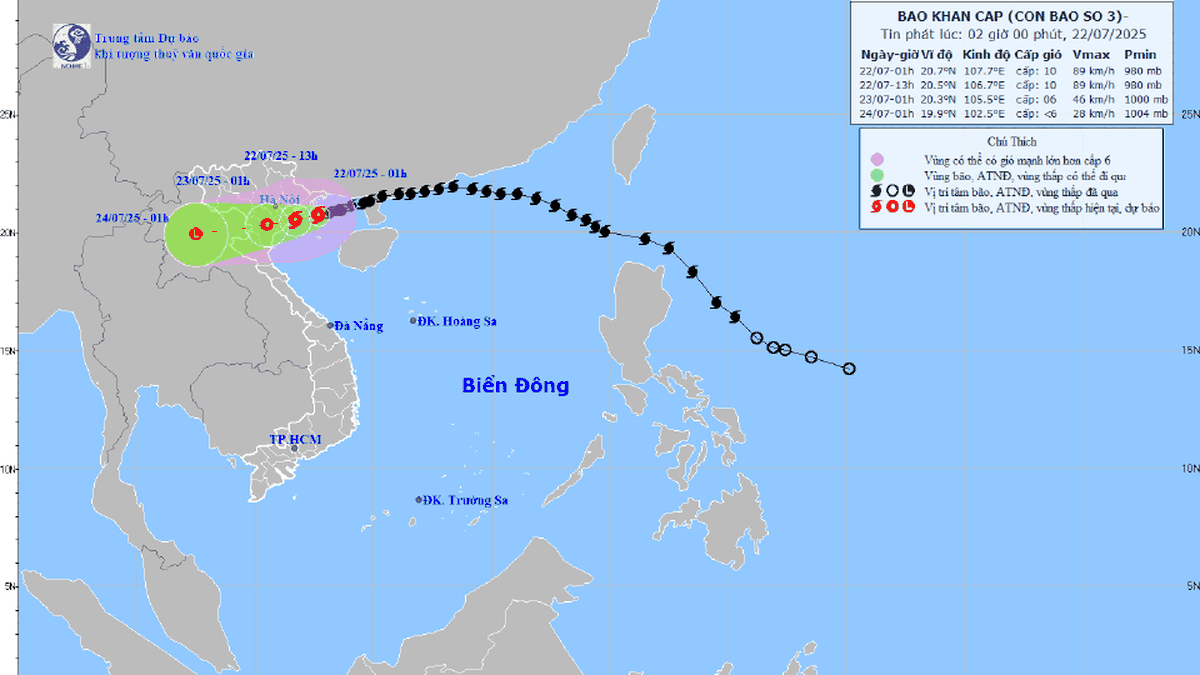
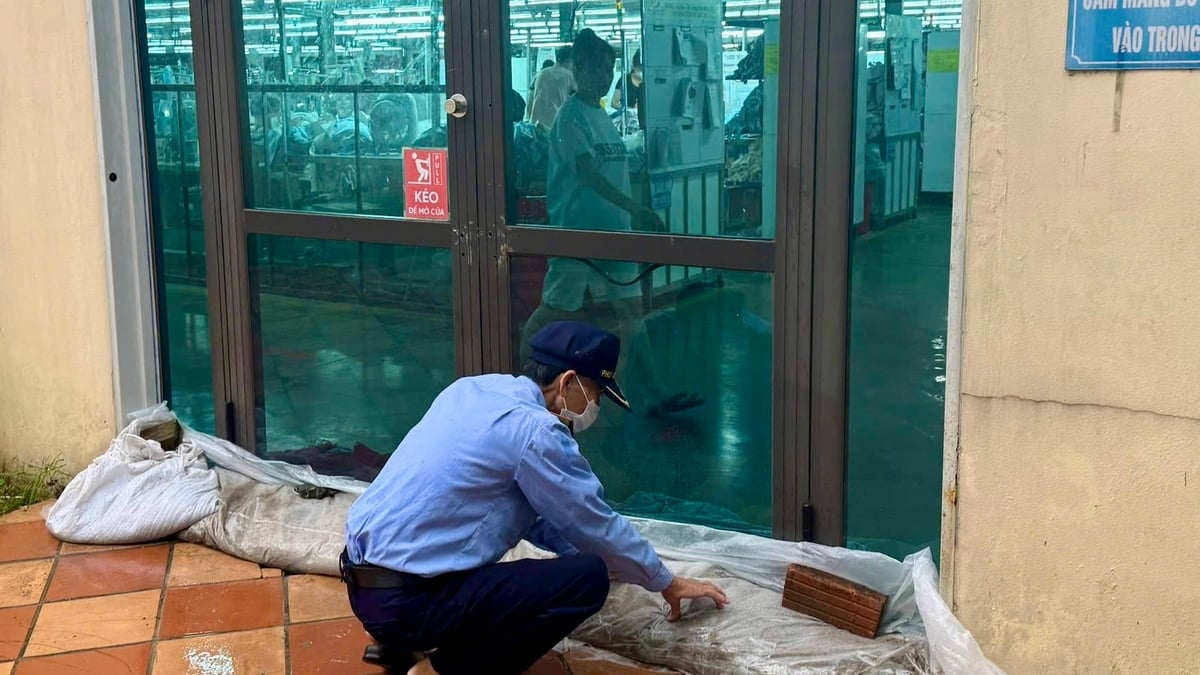
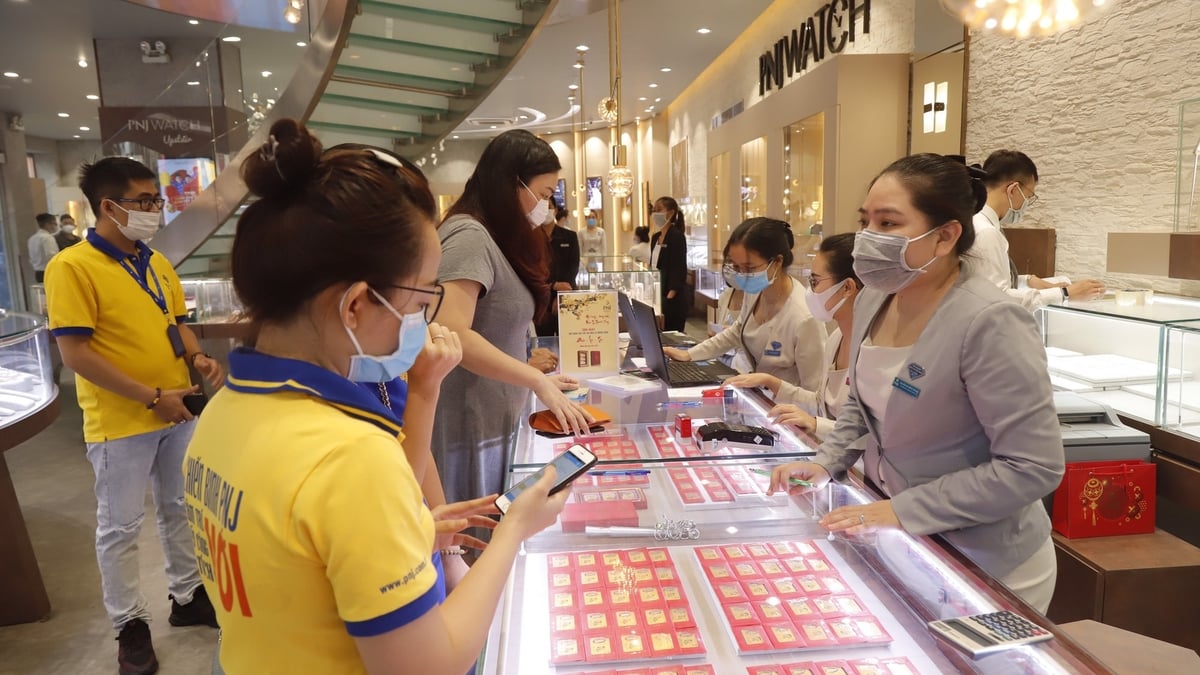
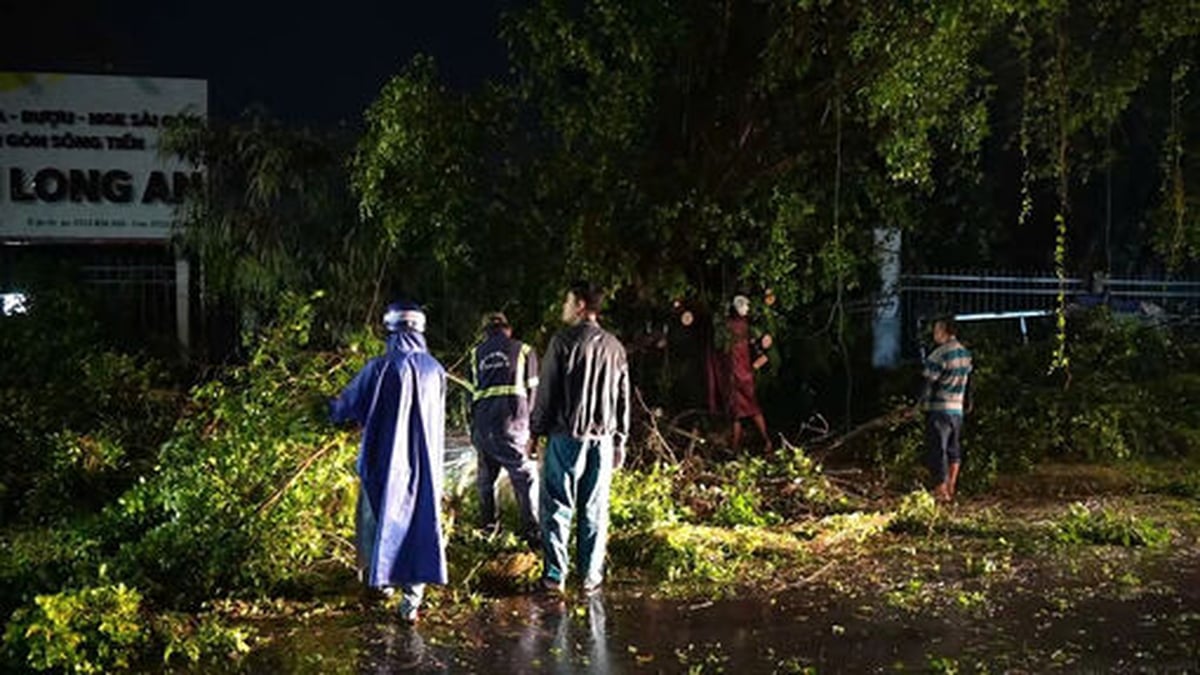
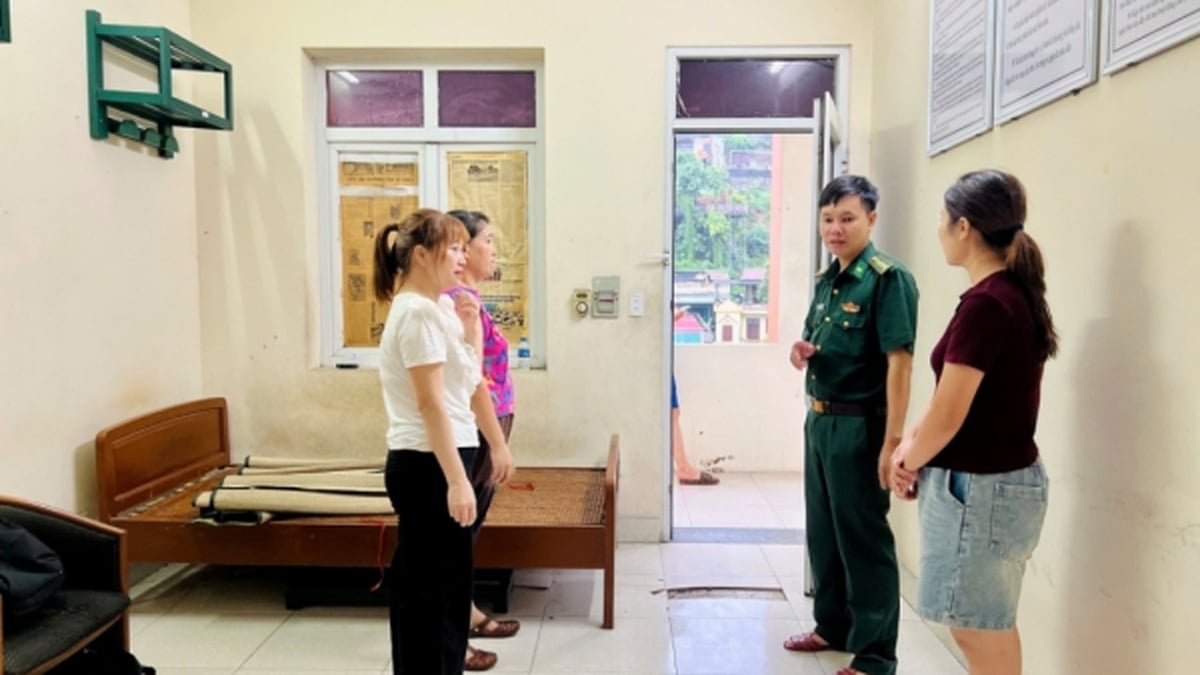
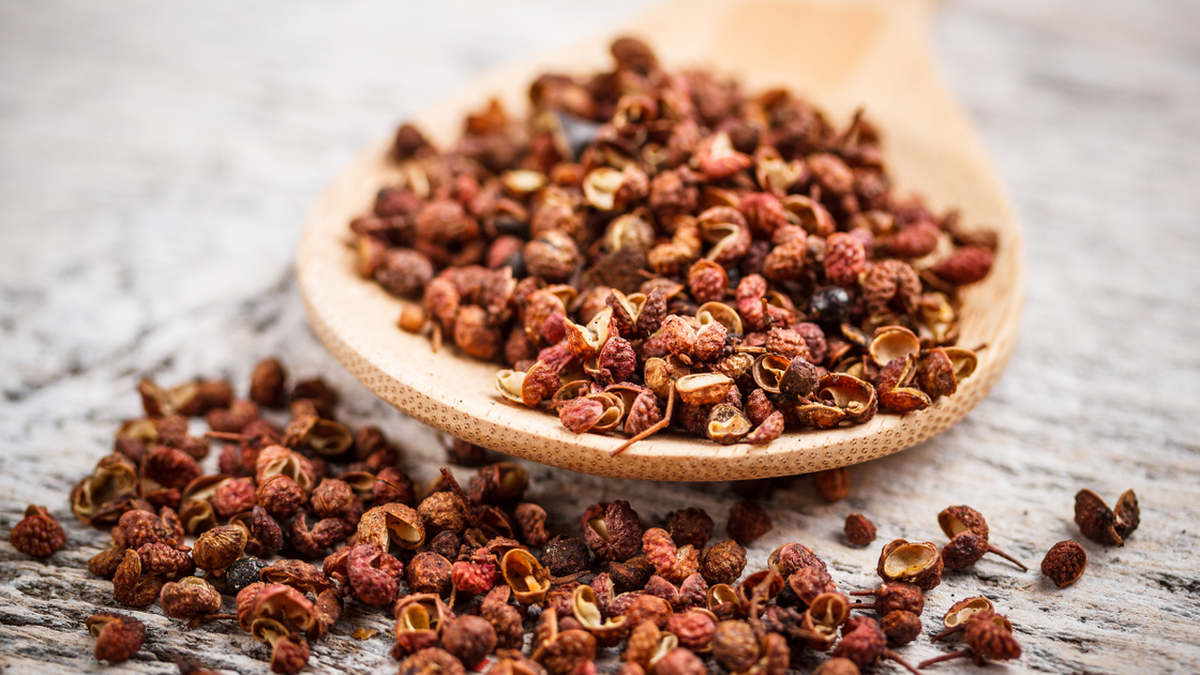
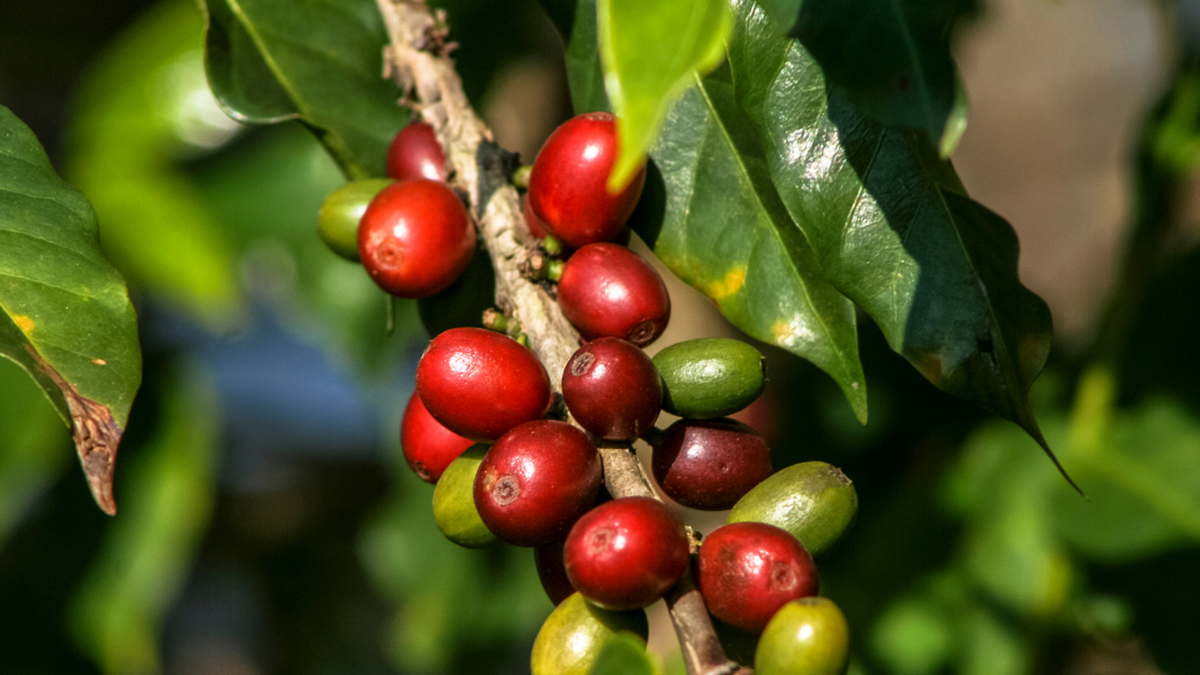



















![[Photo] National Assembly Chairman Tran Thanh Man visits Vietnamese Heroic Mother Ta Thi Tran](https://vphoto.vietnam.vn/thumb/1200x675/vietnam/resource/IMAGE/2025/7/20/765c0bd057dd44ad83ab89fe0255b783)





































































Comment (0)